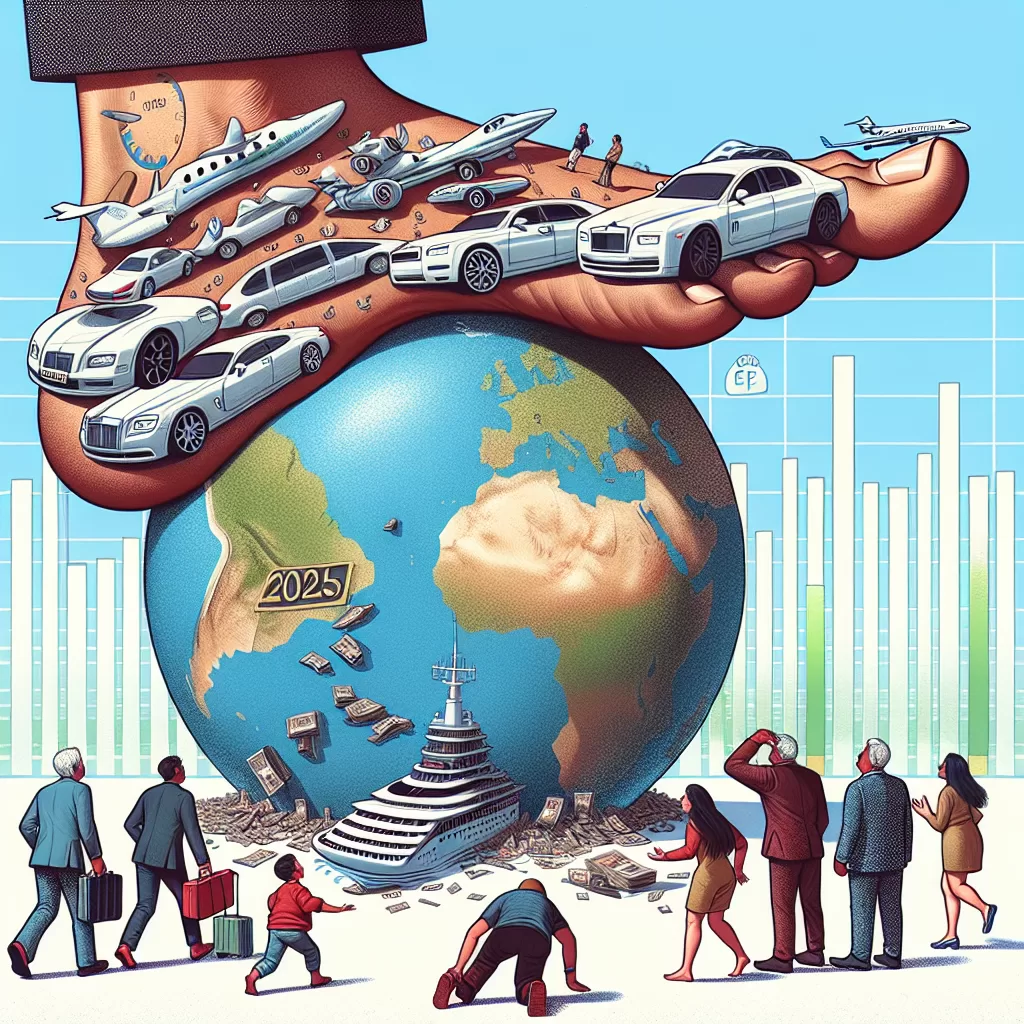Wealthy's Outsized Carbon Footprint Depletes 2025 Budget in Days
In a jarring display of inequality, the consumption patterns of an individual from this monied elite have caused, on average, 2.1 tonnes of carbon dioxide emissions in less than two weeks. In stark contrast, it would take someone from the poorest 50% of the world’s population three years to generate the same amount of pollution.
Unsustainable Lifestyles Fueling Climate Crisis
The findings underscore the disproportionate impact of affluent lifestyles on the environment, exacerbating the already dire consequences of climate change. As the world grapples with the existential threat posed by rising temperatures and extreme weather events, the actions of a select few are putting the planet’s future at risk.
Glaring Disparities in Carbon Footprints
The report highlights the glaring disparities in carbon footprints across different socioeconomic strata. While the richest individuals indulge in carbon-intensive activities, such as frequent air travel, luxury goods, and energy-guzzling homes, those in poverty bear the brunt of the climate crisis, often lacking the resources to adapt or mitigate its impacts.
Urgent Call for Sustainable Lifestyle Changes
Environmental experts and advocacy groups have long advocated for a fundamental shift in the way we consume and live. The findings serve as a wake-up call for the wealthy to reassess their lifestyles and embrace sustainable practices, such as reducing energy consumption, adopting clean transportation, and supporting eco-friendly initiatives.
As the world inches closer to the critical 1.5°C temperature threshold outlined in the Paris Agreement, individual actions, particularly those of the most affluent, can have a profound impact on the collective effort to combat climate change.
Policy Measures and Corporate Responsibility
Governments and corporations also play a crucial role in driving sustainable change. Implementing carbon pricing mechanisms, investing in renewable energy sources, and prioritizing circular economic models can help mitigate the environmental impact of human activities.
By addressing the outsized carbon footprint of the wealthy and promoting sustainable practices across all sectors of society, we can work towards a more equitable and environmentally conscious future for generations to come.

